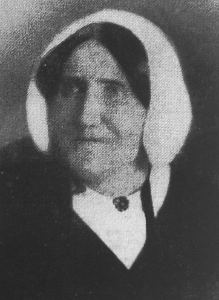There were Baptists in Port Bannatyne at the beginning of the 19th century, ministered to by Donald MacArthur of Colintraive, one of the earliest Baptist evangelists in the West of Scotland and founder of several Churches around the Firth of Clyde. By the time of the foundation of Ardbeg Baptist Church, the Port Bannatyne church was no longer in existence.

Meanwhile, in Stirling, Rev. William Shirreff, minister of St. Ninian’s Parish Church, became convinced of the importance of Believers’ (i.e. adult) Baptism, and in 1823 resigned his charge and left the Church of Scotland. He became minister of the Baptist Church in Albion Street, Glasgow, where he remained until his death in 1832. His widow, Mrs. Mary Shirreff, lived in Glasgow until 1839, when her health deteriorated and a move to more healthy surroundings was advised. She settled in Rothesay and, there being no Baptist Church on the island, worshipped at one of the other Churches in the town. However, she wished there could be a Baptist Church on Bute, and after eight years an opportunity arose. In 1847 a church building, which had earlier been used by an independent congregation, became available for purchase. Mrs Shirreff bought it, and in November of that year it was opened for Baptist worship.
In a letter, Mrs Shirreff explained her intentions: “Ardbeg Chapel, formerly occupied by the Independents, has been opened by the Baptists with a view to make known Christ’s will as to the purity of Communion and Believers’ Baptism, and if God shall be pleased to grant His Blessing, in due time to form a church wherein Christ’s Ordinances may be observed in the manner enjoined in His Word.”
Mrs. Shirreff and her daughter, also Mary Shirreff, played an active part in the young Church, and, whilst the Church was served regularly by visiting preachers, core support in Bute was built up. Finally, on 8th April 1855, the Church was formally constituted, and the Rev. Thomas Callendar called as its first pastor. The first deacons were also appointed: Colonel Scott, Thomas Fyfe, and John Duncan.
